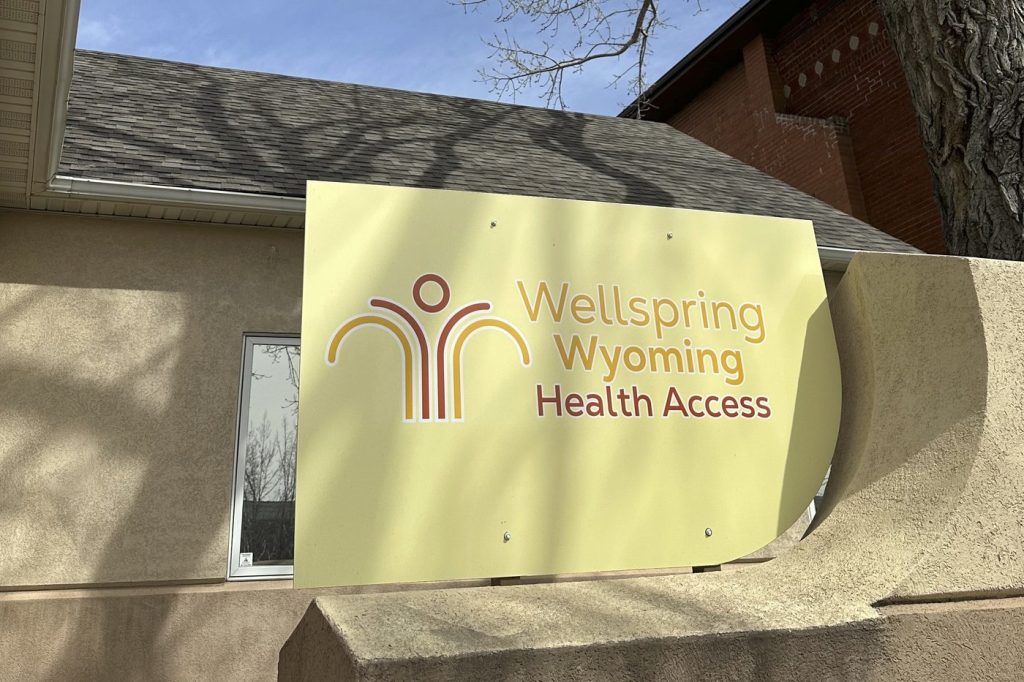CASPER, Wyo. — A Wyoming woman recently faced unforeseen complications when she attempted to make an appointment at the state’s only abortion clinic, Wellspring Health Access, to terminate her pregnancy. On the same day she called, the clinic announced it had ceased providing abortion services indefinitely due to new state regulations that require it to obtain licensure as a surgical center, a process estimated to cost up to $500,000 in renovations.
Despite abortion remaining legal in Wyoming, the process has become increasingly convoluted and difficult for women seeking the procedure. The woman's only option was to travel to Colorado, which borders southern Wyoming, to receive the care she needed.
The situation has been further complicated by ongoing legal battles regarding state abortion bans. On Wednesday, the Wyoming Supreme Court is scheduled to hear arguments concerning these bans that a lower court judge previously suspended, declaring them unconstitutional. However, even a favorable ruling may not guarantee stable access to abortion in the state.
New legislation specifically targets Wellspring Health Access. Along with a surgical center licensure requirement, the law mandates that physicians at the clinic obtain admitting privileges at a nearby hospital, a facility located just three blocks away that is not obligated to accept their applications. Julie Burkhart, founder and president of Wellspring, argues that these restrictions effectively serve as an abortion ban without an outright prohibition on abortions.
Another significant law requires women to undergo ultrasounds at least 48 hours prior to obtaining a medication abortion, a procedure that can incur costs of $250 or more, in addition to travel expenses. This presents a substantial hurdle, especially for women in rural areas of Wyoming where ultrasound services may not be readily available.
Wyoming's attorney, John Woykovsky, contends that the legislative measures are justified as they aim to protect women's health from potential complications during abortions. However, the mandatory transvaginal ultrasounds required to obtain fetal images in early pregnancies have raised concerns, particularly among survivors of sexual assault. This led to Governor Mark Gordon's veto of the ultrasound bill shortly after he enacted the surgical center licensing requirement, which the Republican-dominated legislature subsequently overrode.
The resulting uncertainty around the legal landscape has struck hard at Wellspring Health Access, which opened in 2023 after a prior arson attack delayed its launch. As a consequence of the legal and operational complications, the clinic has halted both surgical and medication abortions. This leaves women seeking abortion services to navigate long distances to neighboring states.
In a recent court hearing in Casper regarding the temporary suspension of the legislation, a significant number of abortion opponents voiced their opposition, citing concerns about patient safety and the qualifications of healthcare providers. Conversely, advocates for abortion access argue that the actual demand for services suggests that lawmakers are out of touch with the views of many Wyoming residents. Burkhart emphasized that their continuous patient influx indicates support for abortion services among the population, contradicting the narratives of its opponents.
Legal disputes continue to unfold, particularly with respect to a case challenging the constitutionality of Wyoming's laws restricting abortion since 2022. A November ruling by a judge in Jackson asserted that these bans violate a 2012 constitutional amendment that grants adults the right to make their own healthcare decisions. Even if the Supreme Court agrees with prior rulings, Wellspring Health Access could still suffer financial and operational setbacks, as the clinic's annual patient numbers drastically declined from a potential 22 patients per day pre-legislation to just five individuals—exclusively seeking hormone replacement therapy—since the law's enactment.
Notably, 23 other states have passed similar "targeted regulation of abortion providers" (TRAP) laws, which impose stringent regulations without outrightly banning the procedure. Despite legal challenges in some cases leading to temporary blocks of these laws, their implications persist across various states, making access to abortion significantly more difficult for women nationwide.
The predicament for the Wyoming woman seeking care illustrates the growing barriers to abortion access, forcing patients to travel alarming distances—over four hours, in some cases—just to receive basic reproductive healthcare. The complex situation continues to unfold, highlighting the extensive impact that state legislation has on women's health choices in Wyoming.










